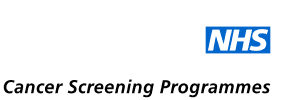New results give further support to the
NHS Breast Screening Programme

New results give further support to the |
 |
|
|
('Long-term effects of mammography screening: updated overview of the Swedish randomised trials' by Nyström et al, The Lancet, 16 March 2002) Published 16th March, 2002 Julietta Patnick, National Coordinator of the NHS Cancer Screening Programmes comments: "We are delighted that this paper by Nyström and colleagues concludes that breast cancer screening is effective, and that recent criticism against the Swedish randomised controlled trials is 'misleading and scientifically unfounded'." "While the full benefits of the NHS Breast Screening Programme will not be evident until the end of the decade, this paper corroborates our premise that breast screening saves lives, especially for women who accept their regular invitations. Sixty per cent of screen-detected cancers are in women returning to us for repeat screening." "The NHS Breast Screening Programme provides free breast screening for women aged 50-64. We are currently extending the programme so that by 2004 women will be screened up to and including the age of 70." Last year the programme detected more cancers than ever before, including an increase in the number of small cancers detected. In 1999/2000 the NHS Breast Screening Programme detected:
UK Age and Frequency Trials"The NHS Breast Screening Programme is constantly under review. This includes examining the age group of women screened, and the interval between screens." "The age trial, due to report in 2005, involves inviting 65,000 women aged 40 and 41 for breast screening to consider the benefit, if any, gained from screening younger women." "The results of the frequency trial, to be published in the European Journal of Cancer in the next couple of months will determine if screening should be repeated more often than the present three yearly interval." "In conclusion, we know that breast screening works and encourage women to accept their invitation for screening. Of course, the ultimate challenge for all of us is to make sure that the cancers we detect are treated successfully." |
Breast screening programme index What happens at a What are the risks of breast screening? Frequently Asked Questions (FAQs) DCIS (Ductal Carcinoma | ||||||||
| ||||||||||